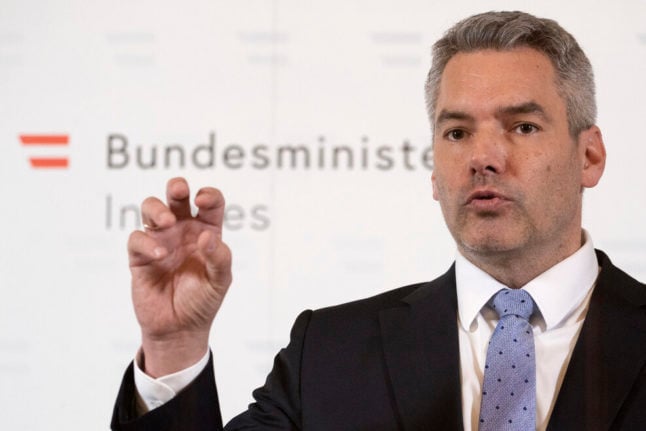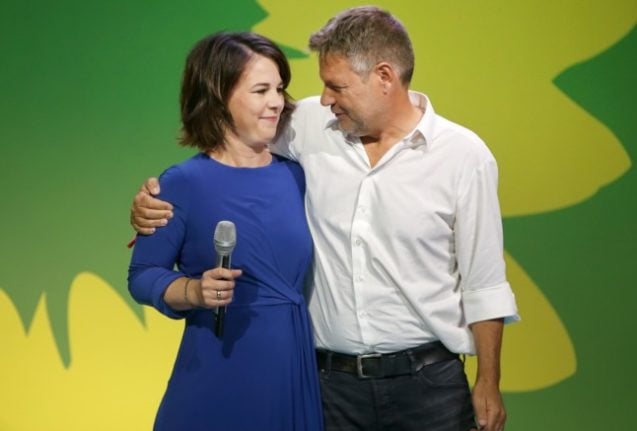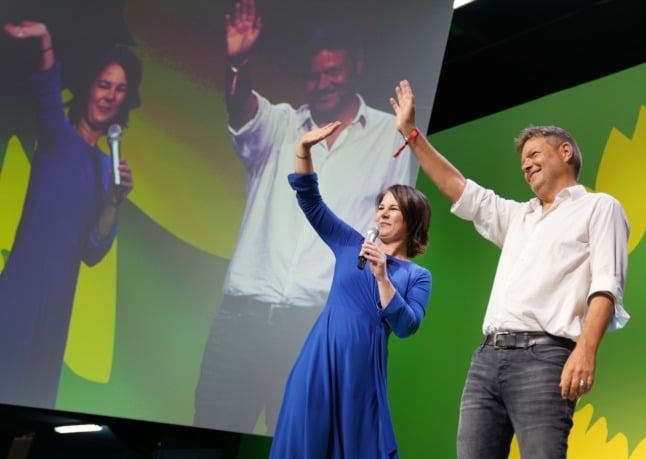Despite a high-profile campaign to keep the students and their families in Austria, they were deported to Georgia and Armenia early on Thursday morning.
Dramatic scenes on Austria TV showed the students — aged between 12 and 20 — and their families being driven to the aircraft and police officers dragging protesters out of their path.
Interior Minister Karl Nehammer, from the centre-right People’s Party (OeVP), said he was “personally affected” by the girls’ plight.
SEE ALSO: Why Kurz now backs Merkel on rejection of far-right
But Green party politicians say Nehammer could have prevented the deportations and hit out at the OeVP, with the leader of the Green delegation of MPs, Sigrid Maurer, slamming Nehammer’s comments as “hypocrisy”.
Even President Alexander Van der Bellen, a former Green politician who normally remains above the day-to-day political fray, condemned the action, saying: “I cannot believe that we live in a country where this is really necessary.”
‘Extreme’ conflict
Analysts say the row shows how arguments that erupted shortly after the coalition government was sworn in last year, but which have taken a back seat during the pandemic, may now begin to return to the fore.
Under its leader, Chancellor Sebastian Kurz, the OeVP has made much of its tough stance on immigration, attracting voters from the far-right Freedom Party (FPOe) in the process.
By contrast, the Greens have been the most outspoken advocates of refugee rights in Austrian politics.
“The conflict with the Greens over migration is one of the most extreme you can find in terms of disparities within the political spectrum,” said Julia Partheymueller of Vienna University’s Centre for Electoral Research.
“If the pandemic is ever over, other issues will emerge,” said Partheymueller, adding that as “migration remains a very salient issue, I do think such rows will happen more frequently.”
Indeed, even in the earlier stages of the pandemic, the Greens found themselves overruled on issues surrounding migration.
The Greens made clear their wish to take in people from the sprawling, overcrowded and unsanitary migrant camp of Moria in Greece.
But Chancellor Kurz quashed the idea, promising instead to send aid to help “on the ground”.
Political analyst Thomas Hofer said that there was a danger of the OeVP “overdoing it” and being too harsh in its stance on migration.
“The Greens are being humiliated a little here,” he told AFP.
The party is facing “a stress test… It’s harming the DNA of the Green party,” he said.
‘Show they can deliver’
Even Green Vice-Chancellor Werner Kogler, who has normally been at pains to smooth over any differences within government, branded the girls’ expulsions as “inhuman” and “irresponsible”.
Nevertheless, analyst Hofer said that, for the moment, “the Greens want to show that they can stay in government, that they can deliver”.
Another key issue was climate change, the expert said.
“This is I think the most important issue for them this coming year,” he said, pointing as an example to a proposed “greening” of the tax system.
Partheymueller suggested out that, with none of the larger parties taking a more liberal line than the Greens on immigration, disaffected Greens “have nowhere (else) to go.”
In the meantime, Green Health Minister Rudolf Anschober made the case for his party’s continued presence in government.
“We’re in government to try to contribute to making things better,” Anschober told the Puls24 TV station.
“That works on many days, on some days sadly it doesn’t. Thursday was one of those days,” he said.




 Please whitelist us to continue reading.
Please whitelist us to continue reading.
Member comments